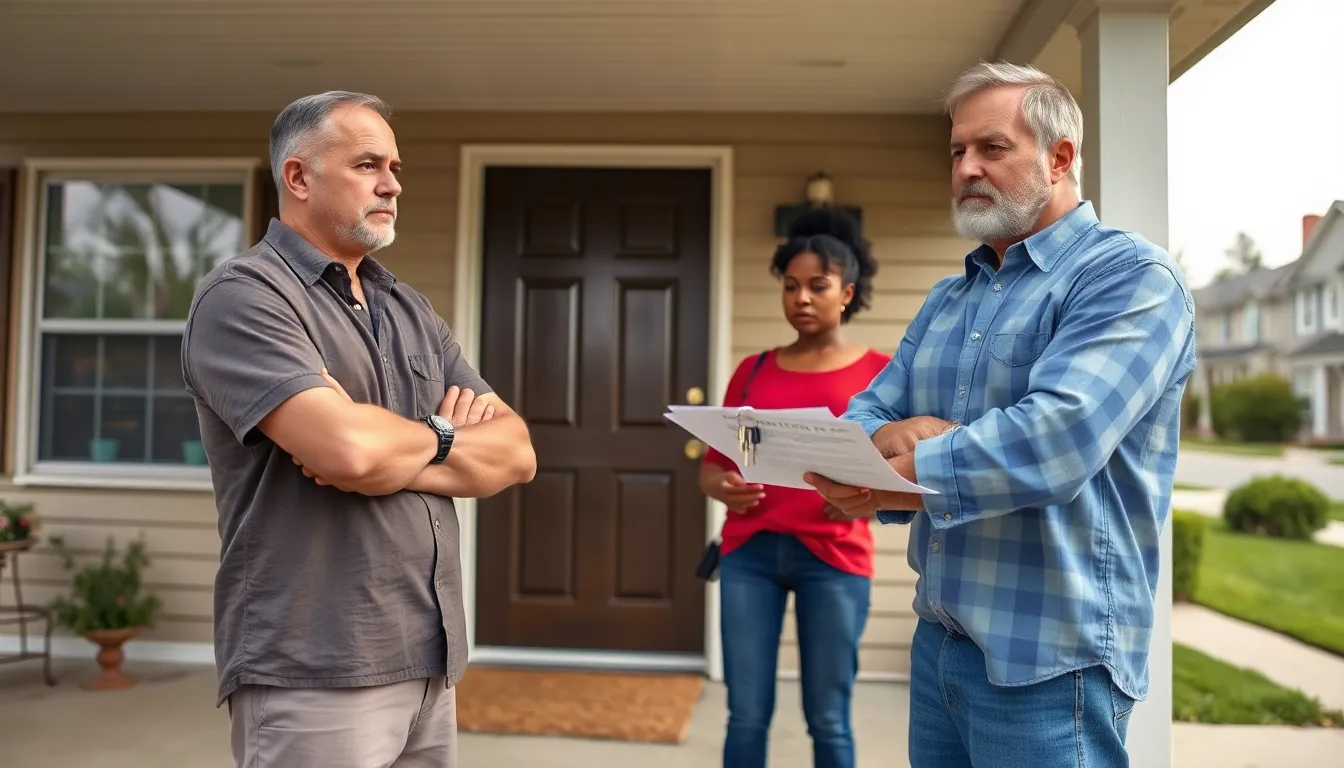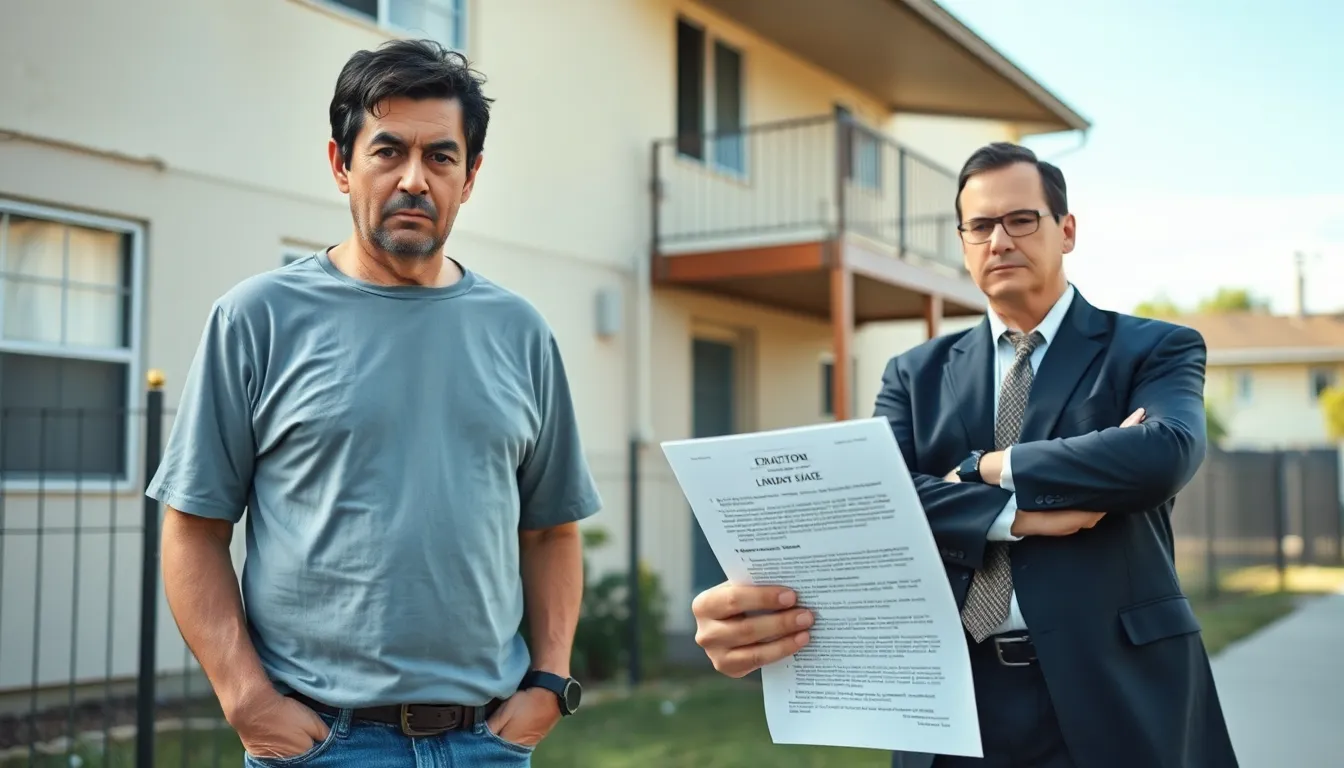Navigating the world of rental properties can be tricky, especially when disputes arise between landlords and tenants. These conflicts often stem from misunderstandings, unmet expectations, or differing interpretations of lease agreements. Whether it’s about maintenance issues, security deposits, or lease violations, these disputes can quickly escalate if not addressed properly.
Understanding the common causes of landlord disputes is crucial for both parties. It helps in fostering better communication and finding amicable solutions. By exploring the intricacies of these conflicts, individuals can equip themselves with the knowledge needed to prevent escalation and resolve issues effectively.
Table of Contents
ToggleUnderstanding Landlord Disputes
Landlord disputes arise from various issues that can complicate the rental experience. Recognizing common causes and types of disputes helps tenants and landlords address concerns effectively.
Common Causes of Disputes
- Maintenance Issues: Landlords often face disputes when tenants report maintenance problems. Delays in repairs or inadequate responses can lead to frustration for tenants.
- Security Deposits: Disagreements about the return of security deposits frequently occur. Tenants may feel entitled to their deposits despite damage or unpaid rent, while landlords seek legitimate deductions.
- Lease Violations: Violations of lease terms, such as unauthorized pets or subletting, commonly provoke disputes. Landlords must enforce rules, while tenants may argue about fairness.
- Communication Breakdowns: Misunderstandings between landlords and tenants stem from poor communication. Lack of clarity about responsibilities contributes to conflicts.
- Rent Increases: Unexpected rent increases can trigger disputes. Tenants may question the legality or fairness of sudden price hikes, while landlords need to justify adjustments.
Types of Landlord Disputes
- Eviction Proceedings: Disputes over evictions arise when landlords seek to remove tenants for non-payment or lease violations. This process often requires legal intervention.
- Lease Agreement Disputes: Conflicts can occur regarding the interpretation of lease terms. Ambiguities in agreements often lead to differing expectations between parties.
- Property Damage Claims: Claims related to property damage can create disputes. Landlords may hold tenants responsible for damages, while tenants might contest these claims.
- Quiet Enjoyment Violations: Tenants may claim landlords violate their right to quiet enjoyment. Issues like excessive noise or harassment could prompt legal action.
- Habitability Concerns: Disputes arise when premises fail to meet habitability standards. Tenants may demand repairs for issues such as pest infestations or inadequate heating, leading to potential legal ramifications.
Legal Framework Surrounding Landlord Disputes

Understanding the legal framework is crucial to resolving landlord disputes effectively. This framework provides guidelines for both tenant rights and landlord responsibilities.
Tenant Rights
Tenants possess several legal rights aimed at protecting their interests. These rights typically include:
- Right to a Habitable Property: Tenants should reside in a safe and sanitary environment, free of significant health hazards.
- Right to Privacy: Tenants can expect landlords to provide reasonable notice before entering the rental unit, except in emergencies.
- Right to a Security Deposit Refund: Tenants are entitled to a prompt return of their security deposit, minus lawful deductions, after the lease ends.
- Right to Challenge Eviction: Tenants can contest eviction notices through proper legal channels if they believe the eviction is unjust or illegal.
- Right to Fair Housing: Tenants cannot be discriminated against based on race, religion, gender, or other protected characteristics.
Each state may have specific laws reinforcing these rights, so tenants should familiarize themselves with local regulations.
Landlord Responsibilities
Landlords also bear specific legal obligations concerning rental properties. Key responsibilities typically include:
- Maintenance Obligation: Landlords must ensure that properties are well-maintained and comply with health and safety codes.
- Duty to Repair: Landlords are expected to address repair requests within a reasonable timeframe, especially for essential services like heating, plumbing, and electrical systems.
- Security Deposit Regulations: Landlords should provide a written statement detailing deductions from the security deposit and adhere to statutory timelines for returning deposits.
- Fair Housing Compliance: Landlords must not engage in discriminatory practices during tenant selection or property management.
- Lease Agreement Adherence: Landlords should uphold the terms set forth in lease agreements and provide written notice of any changes.
Understanding these obligations facilitates smoother interactions and fosters a more positive rental experience.
Resolving Landlord Disputes
Effective resolution techniques for landlord disputes emphasize communication and mutual understanding. Engaging in proactive approaches can lead to satisfactory outcomes for both parties.
Negotiation Techniques
Negotiation techniques play a crucial role in resolving disputes. Both landlords and tenants benefit from the following strategies:
- Active Listening: Each party should listen to the other’s concerns without interruptions. Understanding perspectives promotes collaborative problem-solving.
- Clear Communication: Parties should articulate their needs and expectations clearly. Avoiding assumptions minimizes misunderstandings.
- Finding Common Ground: Identifying shared interests can pave the way for compromise. This process often reveals alternative solutions that satisfy both sides.
- Staying Calm: Maintaining composure during discussions prevents escalation. An emotional approach can hinder productive dialogue.
- Setting Boundaries: Establishing the scope of the negotiation provides structure. Clearly defining acceptable outcomes keeps discussions focused.
Mediation and Arbitration
Mediation and arbitration offer structured processes for resolving disputes when negotiations stall. These methods involve third-party facilitators and provide alternative avenues for resolution.
- Mediation:
- A neutral mediator assists both parties in discussing issues. Mediation encourages open dialogue while keeping control of the outcome with participants.
- Mediation often results in creative solutions tailored to both parties’ needs.
- Arbitration:
- In arbitration, a neutral arbitrator listens to both sides and makes a binding decision. This method is more formal than mediation and resembles a court proceeding.
- Arbitration provides a faster resolution and can minimize legal expenses associated with litigation.
By utilizing negotiation techniques and alternative dispute resolution methods such as mediation and arbitration, landlords and tenants can resolve disputes effectively and foster a healthier rental relationship.
Prevention of Landlord Disputes
Preventing landlord disputes centers on proactive measures that address common conflict areas. Implementing clear guidelines and maintaining open lines of communication significantly reduces misunderstandings.
Clear Lease Agreements
Clear lease agreements serve as the foundation of a successful landlord-tenant relationship. Detailed agreements outline responsibilities, payment terms, and property rules. Including specific clauses about maintenance procedures, repair timelines, and security deposit terms helps prevent conflicts. Ensuring all parties understand their obligations, such as who is responsible for lawn care or utilities, can minimize disputes over expectations. Regularly reviewing and updating agreements also reflects changing laws or rental market conditions, keeping the lease relevant and aligned with best practices.
Effective Communication
Effective communication is crucial in preventing landlord disputes. Both parties should establish open dialogue channels early in the rental relationship. Regular check-ins via email or phone help address minor issues before they escalate. Encouraging tenants to report maintenance concerns promptly results in quicker resolutions. Landlords should provide clear methods for contacting them and respond to inquiries timely. Utilizing written documentation, such as emails or text messages, can help clarify discussions and agreements, creating a record that both parties can reference. Additionally, promoting respectful communication builds rapport, fostering a collaborative environment that reduces conflict.
Navigating landlord disputes requires a proactive approach and a commitment to open communication. By recognizing the common causes of conflict and understanding the legal framework surrounding tenant rights and landlord responsibilities, both parties can work towards a more harmonious rental relationship.
Utilizing negotiation techniques and alternative dispute resolution methods can significantly enhance the chances of reaching amicable solutions. Establishing clear lease agreements and maintaining respectful dialogue can prevent misunderstandings before they escalate.
Ultimately, fostering a collaborative environment not only benefits landlords and tenants but also contributes to a positive rental experience for everyone involved.








